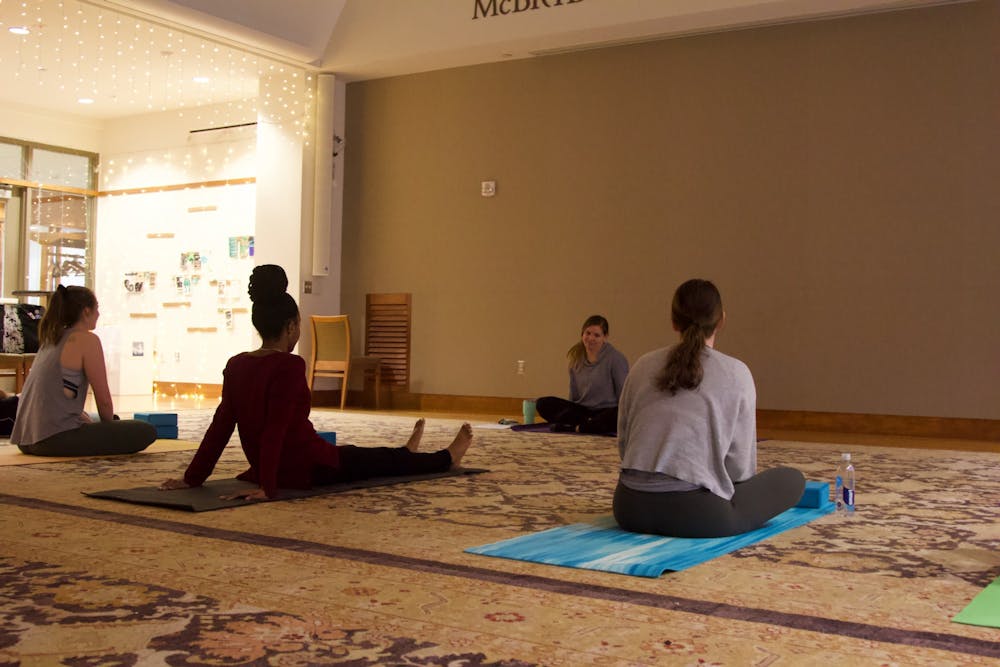From lighting to set-up to sound, every detail was taken into consideration for the trauma-informed yoga session hosted by Elon’s Gender & LGBTQIA Center in the McBride Gathering space on Wednesday night. For Elon University counselor and yoga instructor Allison Agresti, each element of the practice is essential in making sure her clients feel safe and empowered during their yoga practice and lives.
Taking slow, deep breaths, students and faculty began to experience the transformative power of trauma-informed yoga, which Agrest believes is a great asset to those who have experienced any form of trauma.
Agresti said trauma can result from an event, a series of events or a set of circumstances experienced by an individual that can cause lasting negative effects on the individual’s mental, physical, social, emotional or spiritual well-being. She highlighted trauma researcher Bessel van der Kolk when reading his quote.
"We have learned that trauma is not just an event that took place sometime in the past: it is also the imprint left by that experience on mind, body and brain," Agresti said. "This imprint has ongoing consequences for how the human organism manages to survive in the present."
According to the National Center for PTSD, 60% of men and 50% of women have suffered at least one traumatic event in their lifetime. A study through the Eastern Colorado Healthcare System found that up to 17% of college students suffer from PTSD, a rate much higher than the general population.
She explained to her class that being in a yoga class allows you to positively reconnect to your body and feel safe in it again.
“When trauma occurs, it’s common that an individual will experience a disconnect of the mind and body,” Agresti said. “If we don’t have the opportunity to process and release the resultant sense of shock, we may remain stuck in a state of severe physiological and psycho-emotional disequilibrium.”
Agresti said it is a great place to focus on your emotions in a healthy way, rather then turning to substance abuse, which is common in those experiencing trauma.
Sarah Rompalo, a student assistant at the GLC, said she has lived through trauma and was excited to learn about this practice.
“Trauma can manifest in lots of ways,” Rompalo said. “Establishing healthy coping mechanisms like trauma-informed yoga is a great resource for students to have.”
Rompalo hopes that more students will take advantage of all that the GLC has to offer students. She encouraged students to show up and express their support for victims of violence at the events hosted by the GLC during this “Support Survivors Week” at Elon.
For more information on Supporting Survivors Week events, visit the GEC's website to view a full list of the events planned for the week.


